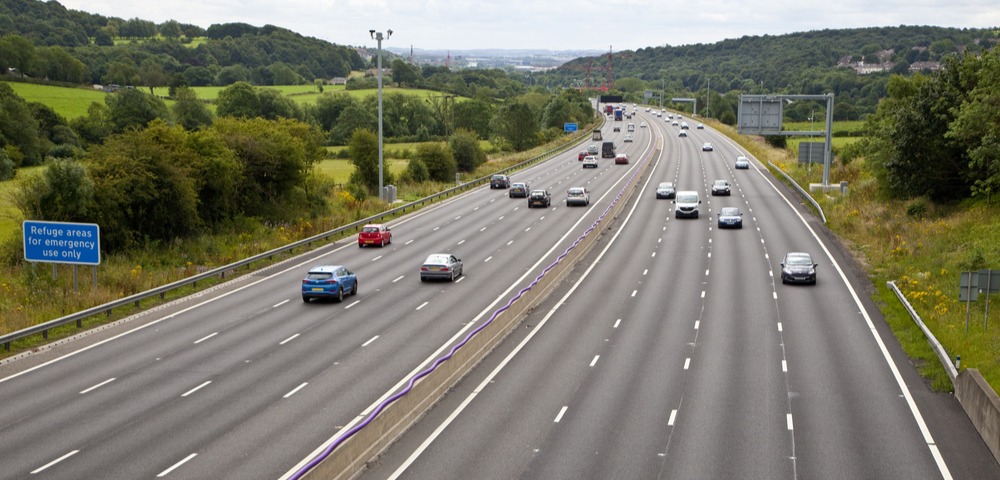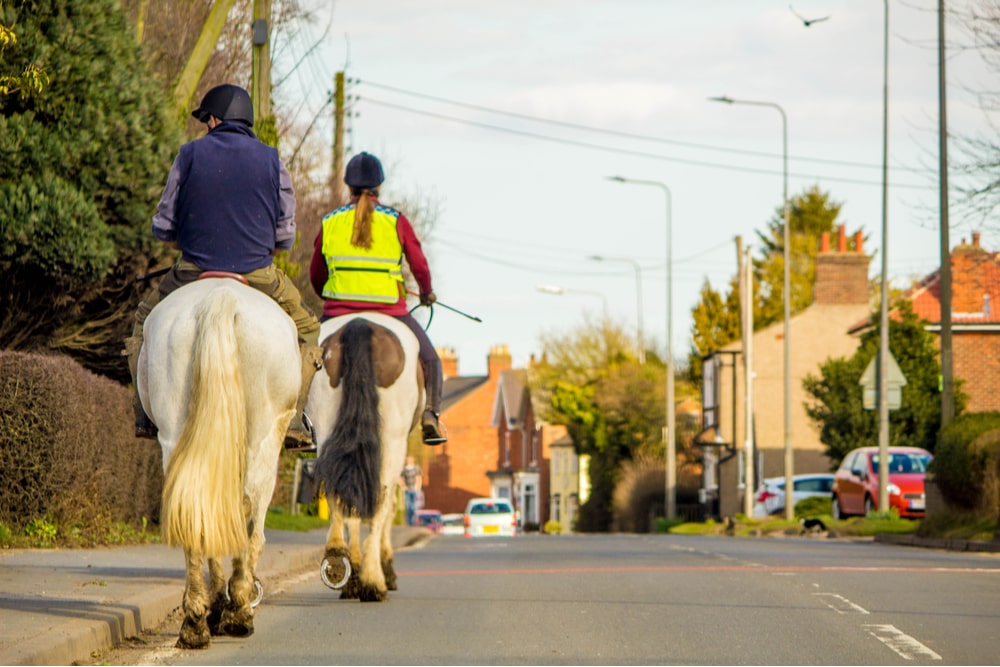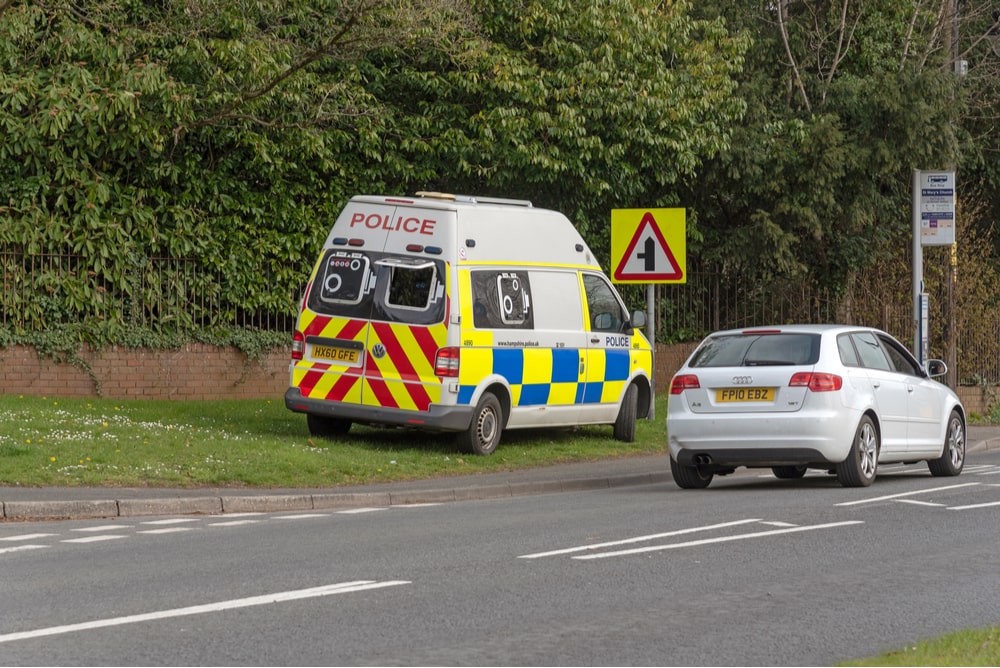You may check out all the available products and buy some in the shop.

So far this year we have seen big changes all over the globe, but 2022 has also been a year for variation when it comes to UK road laws. Staying up to date with the laws surrounding road usage is extremely important and if you aren't aware of the changes that have taken place you could find yourself with some hefty fines or even more. Today we're going to take a look at the newly introduced road laws that have been implemented this year in the United Kingdom - we are going to cover everything from stricter rules regarding road hierarchy to updates to the Highway Code.
As more and more people get behind the wheel we can see roads become a busier and therefore more dangerous place, this is why the Department for Transport (DFT) has agreed updated rules should be introduced to keep our roads safer. So, let's take a look at some of the changes that have taken place regarding road usage in the UK this year.
Updated Road Hierarchy
Roads can be a dangerous place for everyone, however, for some road users, the likelihood of an accident or injury due to a road-related incident is higher than for others. This is why the Highway Code has been changed to improve road safety for vulnerable road users such as pedestrians, horse riders, and cyclists.
The laws regarding road hierarchy changed on the 29th of January 2020 to now state it is the responsibility of a car (or another vehicle) driver to be aware of those who are more at risk whilst on the road.
Here are some examples of when this law may affect you:
- Cyclists travelling straight at road junctions will now have priority over vehicles that are turning in or out and those that are changing lanes.
- A car that is turning into a road or extra road should stop to let any pedestrians waiting at the side of the road to cross before making the manoeuvre.
- Cyclists will also have to give way to pedestrians when using shared cycle lanes.
- Drivers must also give cyclists, horse riders, and pedestrians at least one car width when passing (1.5 metres for cyclists/2 metres for horses).
- When overtaking cyclists drivers must not exceed 30 mph, and drivers must not exceed 10 mph when overtaking horse riders.
- Pedestrians walking on a road without a pavement should be passed with a minimum of two metres of clearance at a low speed.
- Parking on pavements is not allowed in London and is set to be banned across the rest of the UK also.

Smart motorways
Smart motorways are becoming a common appearance across the UK despite their widespread safety concerns. Concerns have been raised due to the lack of hard shoulder on the new four-lane smart motorways which are being developed. A partial solution has been proposed which says lanes marked with a red ‘X’ cannot be used as there is most likely an obstruction ahead. Anyone caught driving in a lane that has been marked as closed with a red ‘X’ will face a £100 fine and three points on their licence.
New Clean Air Zones
More clean air zones are being seen in and around major cities within the UK, with Greater Manchester announcing the introduction of their clean air zone from the 30th of May 2022 onwards and Bradford announcing plans for a clean air zone in the not so distant future.
Clean air zones are designed to charge polluting vehicles for entering certain areas of the city in an effort to reduce the vehicles (and therefore emissions) which contribute to the pollution of the atmosphere in that area.
The clean air zones will not stop you from travelling in that area you should be aware that the charge is related to the emissions of your vehicle with electric vehicles having no charge at all. For most vehicles with combustion engines, you should expect to pay approximately £12.50 per day when entering clean air zones.
Light Flashing
Flashing your headlights has long been a universal way of giving way to other drivers or saying thank you, however, this will now breach the rules stated in the Highway Code. The newly introduced rules say that headlights should only be flashed to let other road users know that you are there and they should not be flashed to convey any other message or to intimidate other road users. This new rule follows on from the previously introduced rules to ban revving your engine or sounding your horn in an aggressive manner when driving.
Electric Vehicle Charging Cables
With more and more electric cars on the UK's roads will you see the first mention of electric car charging cables in the newly updated Highway Code. Rule 239 states ‘every care should be taken when charging vehicles to minimise any danger’. This means that those who own and charge electric vehicles must ensure cables and other charging accessories are not left anyway which would pose a hazard to pedestrians, other road users, or anyone nearby.
New Chip to Stop You Speeding
Speeding has always been one of the number one priorities of UK road safety agencies. The European Transport Safety Council states that of the 26,000 road deaths in Europe every year a large majority are related to excessive speed. For this reason, it is of no surprise that 2022 sees another addition to the crackdown against speeding.
New speed-limiting software has been developed for installation into vehicles to ensure they don't exceed UK speed limits. The Intelligent Speed Assistance system (ISA) has been developed to ensure vehicles do not exceed the speed limit stated on the road the vehicle is travelling on. From the 6th of July 2022 onwards, all new vehicles sold in Europe will be fitted with a mandatory ISA. But this doesn't mean vehicles made before that date will get away with it as models on the market before this date must have an ISA system fitted by May 2024.

Electric Vehicle Charging Points
Some good news for electric vehicle owners - this year sees the introduction of a new law requiring new build homes and buildings to be fitted with an electric car charging point. This new rule has been introduced as the UK moves towards a more climate stable future to encourage people to make a switch to electric vehicles.
With the introduction of this rule, it is expected there will be an extra 145,000 charging stations in operation in the not so distant future. With a cost of around £800 for a basic rapid charger, the government is implementing some financial support for those who need it when it comes to purchasing electric vehicle charging points.
Towing rules
As we previously covered in our ‘New Laws for Towing a Trailer In the UK’ blog, drivers who have passed their test after 1997 are now allowed to do a trailer Up to 3500 kilogrammes without having to pass an additional towing exam. This law alteration means many more road users are allowed to legally to a trailer without an official qualification - training and lessons are still advised.
TrailerTek are a leading UK supplier of all things trailers, if you need any new or replacement parts for your trailer we've got what you need! for any information on how we can help you get towing get in touch with one of our friendly team members!











